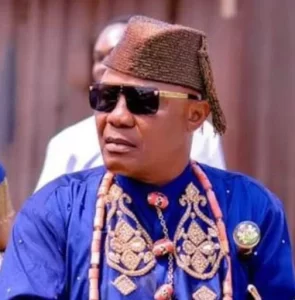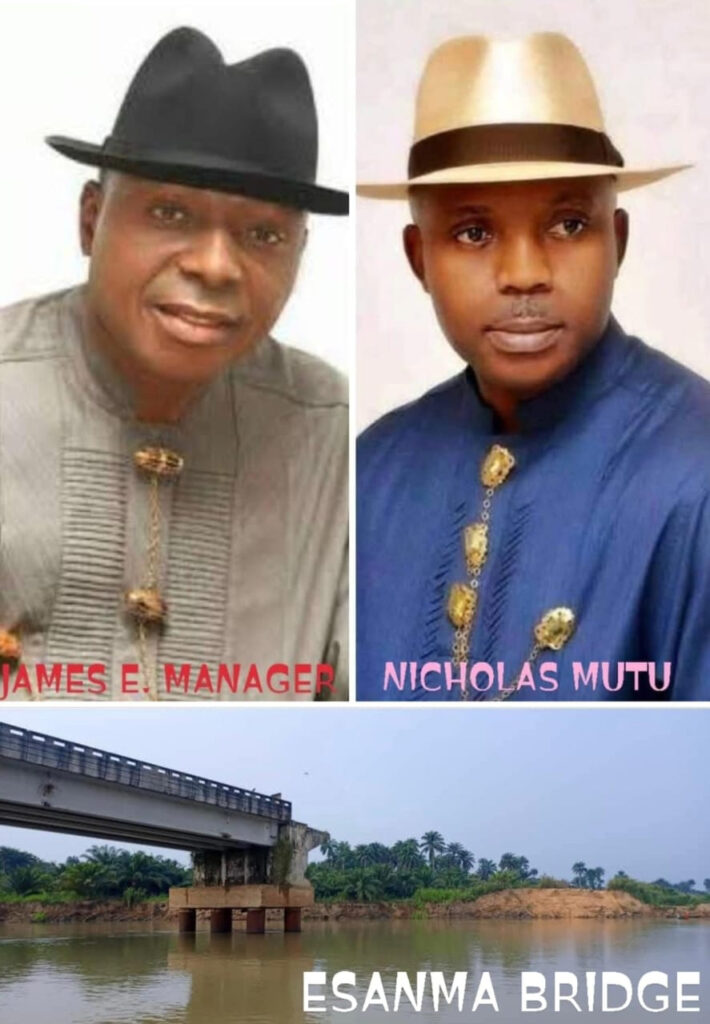
By Augustine Edumogiren
In contrast to genuine democratic practices, where leaders are elected based on their competence, integrity, political affiliation, and commitment to a people-centered agenda, we find a troubling trend in the political landscape of Nigeria – where power is often awarded to individuals solely by virtue of their lineage.

Over time, this monarchical approach has seeped into Nigerian politics, manifesting as a refusal by elected officials to relinquish their positions, thus creating an entrenched “sit-tight” mentality. This phenomenon is especially pronounced among Ijaw politicians in Delta State.
Frequently, these office holders deceive the easily swayed populace by claiming that their positions offer little value while simultaneously clinging to power and utilizing public resources – allegedly diverted into their personal coffers – to sustain their dominance. They have effectively become political monarchs!
This disheartening reality is particularly evident in the Bomadi/Patani Federal Constituency since the dawn of the Fourth Republic in 1999. We remain cautiously optimistic that this dynastic political representation does not extend to Burutu Local Government Area, for we are determined not to accept it. When a leader clings to a position for an extended period, it stifles the aspirations of the youth. Each Ijaw Leader should pave the way for others to ascend to leadership roles, allowing for robust human capital development in Ijaw Communities. Unfortunately, this is not the case in the Bomadi/Patani Federal Constituency, where one individual has effectively obstructed the progress of many who continue to endure hardship in Ijaw Communities.
In a previous article, “My Social Contract with Ijaw: The Resurgence of Ijaw Spirit – A Call for Change,” I posited that a leader is divinely entrusted with the responsibility to uplift and serve justice to their people – not to dominate, fracture relationships, or inflict suffering upon them. Regrettably, the actions of the Delta Ijaw Leaders in power stand in stark contrast to this ideal. These leaders have succeeded in impoverishing individuals, families, and communities, even while refusing to yield their positions to others. This self-serving behavior ultimately undermines the interests of the Delta Ijaw Nation, as an extended tenure in a single role can lead to a lack of innovative ideas – a phenomenon economists refer to as “diminishing returns.”
Consider the exemplary decision made by our esteemed and disciplined leader, Tam Brisibe, who chose not to pursue a third term in the House of Representatives despite ample opportunities for re-election. Tam embodies compassion for his fellow Ijaw Brothers, a stark contrast to the likes of Nicholas Mutu and James Manager, who have often seemed disconnected from the true needs of their constituents.
The narrative of “Ijaw Political Dynasties: A Legacy of Misguided Leadership and Missed Opportunities” is echoed in Ebi Idolo’s upcoming book titled “The Seventh Tenure and 28 Years (1999 to 2027) of Waste Without Physical Impact.” The publication chronicles the experiences of Delta Ijaw Ancestors that were, and still in the National Assembly, highlighting the dismal performance of Manager and Mutu. Manager, who was earlier Commissioner for Works and Transport from 1999 – 2003 in Delta State, and later occupied a Senate seat for five terms – two decades (2003 – 2023) – sought higher office only to lose to the incumbent Governor of Delta State, Sheriff Francis Oborevwori, in the 2023 gubernatorial primaries. Meanwhile, Mutu is enduring his seventh term, 1999 – 2027, in the House of Representatives, a staggering twenty-eight years in total.
It is both tragic and inconceivable that amidst their extensive tenures, the duo, who chaired the Senate and House Committees on the Niger Delta Development Commission (NDDC), failed to construct a single road leading to their ancestral villages of Ogbein-ama and Akugbene. The NDDC did award a contract for the Gbaregolor/Esama Bridge, the only access point to their hometowns; however, poor construction has rendered this bridge unusable, with its approach eroded into the middle of the river from the Esanma axis, posing dangers to local marine transport and livelihoods. Visual evidence of this plight has been shared.
Moreover, the ancient roadways in their communities, bordering the Forcados River, have crumbled, and signs of governmental presence are virtually non-existent. This report merely scratches the surface of the projects attributed to them during their tenure – detailed insights can be found in Hon. Ebi Idolo’s compelling book, where the sheer volume of discrepancies is bound to astonish.
Speculations abound regarding Mutu’s alleged misuse of his position as Chair of the House Committee on NDDC to secure contracts for projects such as the Akugbene Shore protection work, which reportedly went to his elder brother, with no resulting progress while payments were disbursed. The forthcoming book will illuminate these narratives in detail.
Yet, these political stalwarts continue to boast grand titles like “Egbage,” “kene buo yain kpo, ma buo tie-emi,” and “Opu-Akpamaku.” The appositional “Egbage” refers to a traditional iron tripod used in cooking, which Manager has adopted to convey strength in his leadership, claiming resilience even when one leg falters. This flawed analogy suggests that failure within a support system does not result in instability – a notion that has proven false as he experienced a breakdown during the recent gubernatorial primaries.
In contrast, the appellation associated with Mutu implies a big glossy coated metal plate; he has “contained his constituents” for 28 years, even as they continue to languish in weakness and deprivation.
Despite the grandiose titles these political figures attribute to themselves, their journeys back to their roots often involve precarious speedboat rides, drenched by the elements – an unfortunate irony that reveals the disparity between their claims and reality. During their extensive tenures, they had numerous opportunities to pave the way for infrastructure improvements but chose instead to enrich their own interests.
It is acknowledged that Manager and Mutu have provided limited assistance to select allies and family members, however, true representation extends far beyond providing for one’s kin. Their families amass wealth while their constituents remain in dire poverty. Hon. Ebi Idolo meticulously documents these inequities, shedding light on the discrepancies between what has been promised and what has been delivered.
It is disheartening to witness how the greed, nepotism, and inefficiency of these longstanding politicians stand in stark contrast to other members of the National Assembly, such as Ned Nwoko and Francis Ejiroghene Waive, who have diligently worked to bring tangible progress to their constituents.
Unlike the aforementioned leaders, who have served as beacons of hope, attracting development to their communities, Manager and Mutu’s legacies are marked by ethical compromises and self-serving motives that have fostered a culture of “sustainable underdevelopment” in Delta Ijaw Land, as aptly noted by Ebi Franklin Waboke. They are indeed monumental failures and tragedies for the Ijaw Nation.
As the saying goes, “The tree that bends to the wind does not break.” In light of the systemic challenges faced by the Ijaw Nation, we must unite to demand accountability and progress for our people.
While backlash from the defenders of these political figures is likely, it is imperative to stress the importance of true representation. If they had grasped the essence of what it means to serve their constituents, perhaps their legacies would be significantly different.
The potential for Ijaw development exists, but it necessitates action and the cessation of ineffectual leadership.
* Hon. Prince Augustine Edumogiren writes from Ayakoromo Town, Delta State.
On behalf of the Delta Ijaw Progressives (DIP).
*Source: The Real News Media




GIPHY App Key not set. Please check settings